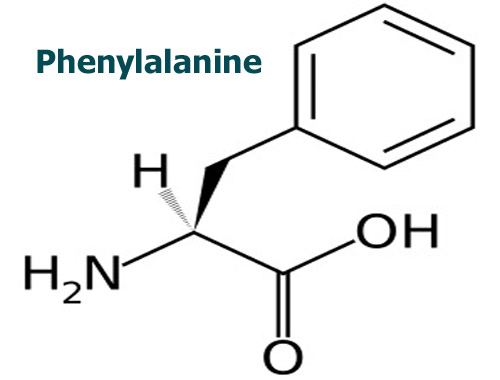Phenylketonuria

Published: 18 Jun 2025
ICD9: 270.1 ICD10: E70.0 ICD11: 5C50.0
Phenylketonuria (PKU) is a rare inherited metabolic disorder that can cause intellectual disabilities if left untreated.
It occurs because the body can't break down an amino acid called phenylalanine (Phe).
Here's a breakdown of key aspects:
![]() Cause: A defective gene causes a deficiency in the enzyme phenylalanine hydroxylase (PAH). This enzyme is needed to convert phenylalanine into tyrosine, another amino acid.
Cause: A defective gene causes a deficiency in the enzyme phenylalanine hydroxylase (PAH). This enzyme is needed to convert phenylalanine into tyrosine, another amino acid.
![]() Build-up: When PAH is deficient, phenylalanine accumulates in the blood and brain. High levels of phenylalanine are toxic and can damage the brain, leading to intellectual disabilities, seizures, behavioral problems, and other health issues.
Build-up: When PAH is deficient, phenylalanine accumulates in the blood and brain. High levels of phenylalanine are toxic and can damage the brain, leading to intellectual disabilities, seizures, behavioral problems, and other health issues.
![]() Inheritance: PKU is inherited in an autosomal recessive pattern. This means that both parents must carry a copy of the defective gene for a child to inherit the disorder.
Inheritance: PKU is inherited in an autosomal recessive pattern. This means that both parents must carry a copy of the defective gene for a child to inherit the disorder.
![]() Diagnosis: Newborns are routinely screened for PKU shortly after birth (usually via a heel prick blood test). Early detection is crucial because treatment can prevent the severe consequences of the disorder.
Diagnosis: Newborns are routinely screened for PKU shortly after birth (usually via a heel prick blood test). Early detection is crucial because treatment can prevent the severe consequences of the disorder.
![]() Treatment: The primary treatment for PKU is a strict diet low in phenylalanine. This includes:
Treatment: The primary treatment for PKU is a strict diet low in phenylalanine. This includes:![]()

![]() Limiting or avoiding foods high in protein, such as meat, fish, poultry, eggs, cheese, milk, nuts, and beans.
Limiting or avoiding foods high in protein, such as meat, fish, poultry, eggs, cheese, milk, nuts, and beans.![]()

![]() Using a special medical formula that provides essential amino acids (except phenylalanine) and other nutrients.
Using a special medical formula that provides essential amino acids (except phenylalanine) and other nutrients.![]()

![]() Eating measured amounts of some fruits, vegetables, and grains.
Eating measured amounts of some fruits, vegetables, and grains.
![]() Lifelong Management: The PKU diet typically needs to be followed for life. Even though brain development is most vulnerable in childhood, maintaining low phenylalanine levels throughout adulthood helps prevent cognitive decline and other health problems. Pregnant women with PKU need to be especially careful to control their phenylalanine levels to prevent birth defects in their babies.
Lifelong Management: The PKU diet typically needs to be followed for life. Even though brain development is most vulnerable in childhood, maintaining low phenylalanine levels throughout adulthood helps prevent cognitive decline and other health problems. Pregnant women with PKU need to be especially careful to control their phenylalanine levels to prevent birth defects in their babies.
![]() Medication: Some individuals with PKU may benefit from medication (e.g., sapropterin dihydrochloride/Kuvan) that can help lower phenylalanine levels. However, this medication is not effective for everyone with PKU. Also, enzyme replacement therapy (Palynziq) is available for some adults with PKU.
Medication: Some individuals with PKU may benefit from medication (e.g., sapropterin dihydrochloride/Kuvan) that can help lower phenylalanine levels. However, this medication is not effective for everyone with PKU. Also, enzyme replacement therapy (Palynziq) is available for some adults with PKU.
In summary, PKU is a serious but treatable condition. Early diagnosis and consistent adherence to a low-phenylalanine diet are essential for preventing the devastating effects of the disorder.